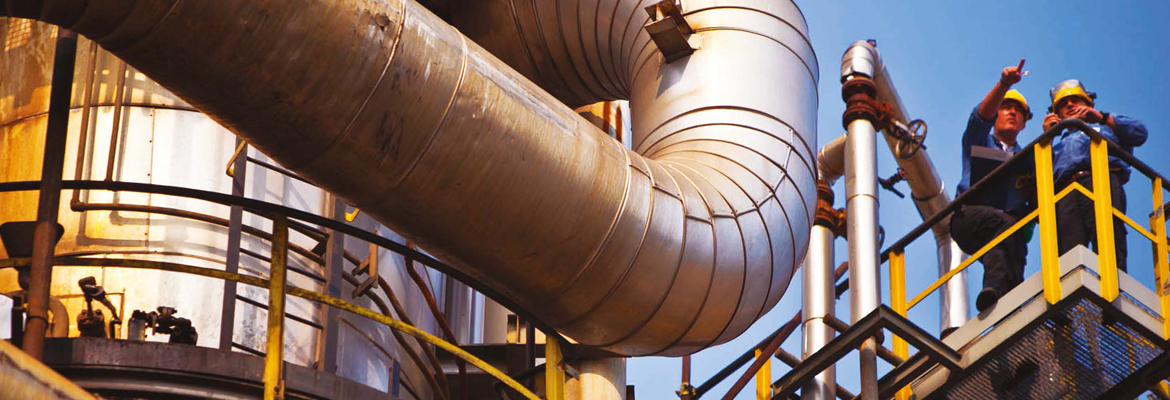To innovate in order to achieve even higher performing products, without added costs for clients and enhancing the environmental value of the finished product. With such objectives, Viscolube – Europe’s leading company for the regeneration of used lubricating oils – decided to install a third catalytic reactor in Pieve Fissiraga (Lodi) to produce a new type of finished base oil. The plant’s annual treatment capacity – about 170,000 tonnes, equalling all of the collected used oil in Italy in a year – will stay unaltered, but quality will be considerably improved. This is already the case, thanks to the process of re-refining of Revivoil used oils, patented and developed by Viscolube in collaboration with Axens – a French company amongst the world leaders in the construction of refining plants – since the Viscolube’s regenerated base oils have identical properties, sometimes even higher, to those produced with first refining lubricating bases.

The New Group 2 Plus Base
The base oils (see box) are divided in five categories, in pecking order (Group 1 bases are the simplest and cheapest). Before the third reactor installation, Viscolube produced Group 1 base oils, so with intermediate characteristics between Group 1 and Group 2. Thanks to the third reactor, developed in collaboration with Axens, the overall catalytic surface will more than double (the three reactors are connected) and Viscolube, besides improving the Group 1 Plus base, will be able to produce, without penalizing the yield of the plant, a new Group 2 Plus base, i.e. with characteristics close to Group 3.
“The new Group 2 Plus base will be made available at a price in line with that of a Group 2 one – explains Gianfranco Locandro – Viscolube’s sales and marketing manager – to a clear advantage for customers. The new product, which will have applications in the industry, the automotive and heavy transport sectors, will be able to replace certain blends between Group 1 and Group 3 and will be characterized by the HG registered acronym (High Grade), to highlight the further hydrogenation step compared to other bases.”
The new Viscolube HG Group 2 base oil will be marketed in the 3N, 4N and 5N versions, with growing levels of viscosity: the 5N being the most viscous and expensive (between the 3N and 5N the price will vary by €40/50 per tonne).
Comparison with Group 2 standards
There are various technical characteristics peculiar to the new Group 2 Plus base as opposed to the Group 2 base, as highlighted in Table 1.

First, the high viscosity index, thanks to which the use of some additives as improvers of the viscosity index can be avoided. “A high viscosity index is important to guarantee that oil in car and lorry engines does not oxidize, thus avoiding temperature peaks – explains Locandro –. In some engines, it is necessary to use lubricants containing Group 3 base oils, particularly stable and oxidation resistant; for the majority of new generation vehicles it is recommended to use a product containing at least 30% synthetic base oils (conventionally, Group 3 and above).”
The second important parameter is colour, it must be L 0.5. This means that the base oil is transparent. A light colour is important for example in rubber: if the oil is too dark, the rubber turns yellow or green. “Colour is also important for market acceptability – continues Locandro –. In the past, the poor colour of regenerated base oils led to mistrusting these products and still today we can find on the market low-quality regenerated base oils, very dark in colour and not very clear. On the other hand, our base oils have a very good colour thanks to high-pressure-and-temperature industrial processes: Viscolube reactors reach a pressure of 100 bars and a temperature of 350 °C.”

A Low Level of SAPS
Modern engines have several post-treatment systems to reduce CO2 and NOx emissions thus respecting limits imposed by law. These post-treatment systems are easily polluted by SAPS (“Sulphate Ash, Phosphor, Sulphur”). “For several years, additives producers have had to use low-medium SAPS formulations to meet manufacturers’ specifications – explains Locandro –. Our Group 2 Plus base oil contains very low level of sulphur so it is compatible with the use of these additives in such formulations.
API Classification of Base Oils
API (American Petroleum Institute) divides base oils into five main categories:
- Group I base oils are solvent-refined, a simple refining process. This is the reason why they are the cheapest available on the market.
- Group II base oils are often manufactured by hydrocracking, that is cracking with hydrogen. Since all the hydrocarbon molecules of these oils are saturated, Group II base oils have better antioxidation properties. They also have a clearer colour in comparison to Group I base oils.
- Group III base oils are refined even more than Group II base oils and generally are severely hydrocracked (higher pressure and heat). This longer process is designed to achieve a purer base oil.
- Group IV base oils are polyalphaolefins (PAOs). These synthetic base oils are made through a process called synthesizing. They have a much broader temperature range and are great for use in extreme cold conditions and high heat applications.
- Group V base oils are classified as all other base oils, including silicone, phosphate ester, polyalkylene glycol (PAG), polyolesters, biolubes. These base oils are at times mixed with other base stocks to enhance the oil’s properties.
Early Market Reactions
“We carried out our first industrial tests with limited quantity of product, 3N and 5N base oils – continues Locandro –. Our Italian and foreign customers who used them have been positively impressed and have already asked us to take into consideration an allocation for next year (we will produce base oils to order and not for stock.) We have already submitted a sample of Group 2 Plus base oil to the USA for characterization and pre-screening in order to obtain API approval and in September, we will submit base oils from our third reactor. Simultaneously, we are seeking the approval of European manufacturers. We are confident our Group 2 Plus base oil will get all the American and European approvals by the beginning of 2018. Our Group 1 Plus base oil has already been approved according to API and the main European manufacturers’ specifications, the most widespread worldwide.”
Info



